English
Writing
- Narrative – character description
- News Report
Reading Skills
- Class Novel: The Iron Man
- Retrieve answers from the text and record accurately
- Words and phrases that capture the reader’s interest and imagination
- Identify words and phrases to include in our own writing.
Grammar / Punctuation / Spelling
- Form nouns using prefixes (super-, anti-)
- Word families based on common words, showing how words are related in form and meaning
- Adjectives & expanded noun phrases
- Direct and reported speech
Maths
Measurement: Length and Perimeter
- Solve problems, including missing number problems, using number facts
- Measure, compare, add and subtract lengths(m/cm/mm)
- Measure the perimeter of simple 2D shapes
Fractions
- Recognize and use fractions as numbers: unit fractions and non-unit fractions
- Recognize and show, using diagrams, equivalent fractions with small denominators
- Compare and order fractions
Science
Light and Shadow
- To identify light sources.
- To understand how shadows are formed
- To investigate reflections and shadows
- To collect data and look for patterns
Computing
Programming Turtle Logo
- Create and debug algorithms to draw regular polygons using the repeat command/ block
- Draw shapes with spaces between using penup and pendown (Turtle Logo)
- Draw regular polygons using Logo to calculate the angle (Turtle Logo)
History
Emperors and Empires
- To understand how the Roman Empire was founded
- To understand what life was like in Ancient Rome
- To identify significant emperors
Geography
Rocks, Relics and Rumbles
- To identify the Earth’s layers
- To understand how volcanic eruptions and earthquakes occur
- To read compass points on maps
Greek
Greek Advanced: Reading:Identify and define new words in a text, write full responses to reading comprehension questions, Grammar:Use of present tense, form the plural of nouns.Spelling: Spell high frequency words and vocabulary that includes double vowels and double consonants, Writing: Describe characters and settings using adjectives, use the vocabulary of term to create comics.
Greek Beginners: Describing myself and my family (Family members, Pets, People adjectives)
Greek Culture
Greek Myths: A brief overview of myths including character lists and vocabulary. Discussions of traditions in Ancient Greece/ moral of the story/ character description.
Greek History/Significant events: Greek Shadow Puppet Theatre
Music
- Familiarising with basic musical terminology
- Learning how the musical staff is used
- Writing notes on the musical staff in an octave range (Do-Do)
- Identifying the notes and singing them at the same time
- Adding note values (Crotchets, Minims and Semibreves)
- Reading and playing a pitched percussion instrument (Glockenspiel)
- Enriching the musical repertoire
Art & Design
Ammonites/ Famous Artists
- Improve their mastery of art and design techniques, including drawing, painting and sculpture with a range of materials (for example, pencil, charcoal, paint, clay)
- Use nature and natural forms as a starting point for artwork
- Learn about great artists, architects and designers in history
PE
Physical development
- Throwing & catching of different equipment with accuracy
Cognitive development
- Working as a team to score points
PSHE
Living in the wider world
This unit is inspired by the idea that we live in a diverse, multicultural and democratic society and that this is important and brings many benefits. It aims to enable the children to identify that they should be respectful of differences. In this unit, students learn about what living in a democracy means. They also learn about the importance of being tolerant of differences within their society.
Philosophy
We look at developing skills like critical and creative thinking, communication, empathy, and logical reasoning. Students learn to reflect on their beliefs, work collaboratively, and apply ethical concepts like fairness and justice to real-life situations. Students learn these skills through games, role play and mini projects.
How can you help at home?
- Establish a regular homework routine
- Listen to your child read as often as you can and ask questions
- Encourage your child to complete the AR test once they have read their book
- Help your child learn weekly spellings
- Practise (and learn by heart) the 2, 3, 4, 5, and 8 times tables
